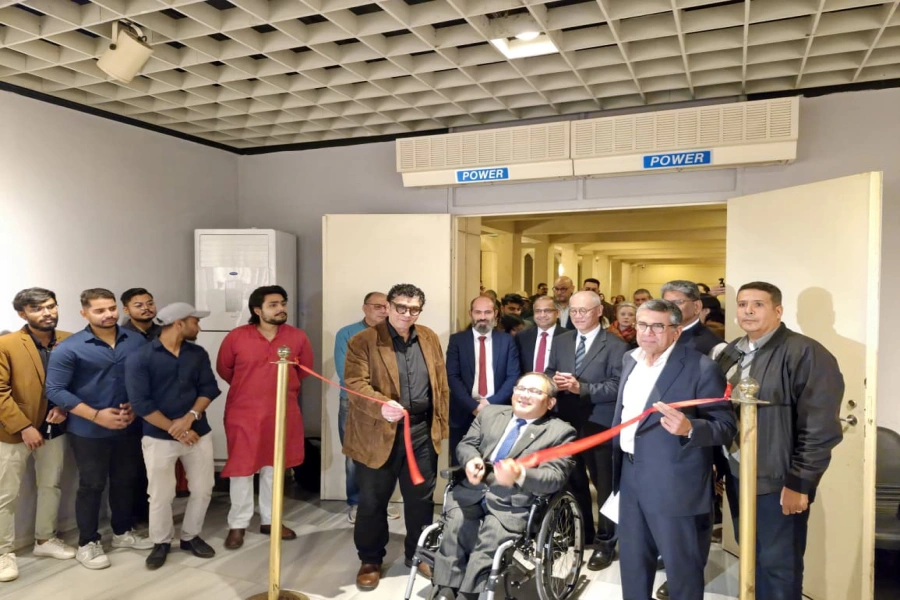While implementing ‘One Belt One Road,’ emerging global power will face obstacles from the current global power
The evening lights of the conference room at a famous address in Kathmandu appeared to be burning brighter on January 17-18. Even my weak eyesight could detect that, thanks to wonderful ideas coming from what I call members of Chinese and Nepali illuminati.
The free flow of ideas reminded me of a catchy ad about the power of ideas: An idea can change your life.
At the two-day China Nepal Think Tank Conference, wonderful ideas like the One Belt One Road Initiative, technology transfer from China to Nepal, China-India-Nepal Economic and Cultural Corridor, CINEC (China-India-Nepal Economic Cooperation), development of Kerung as an international port connecting Nepal, China and beyond, Chinese investment in Nepal’s infrastructure projects and development of a Buddhist and Hindu circuit connecting China’s Kailash and Mansarovar, Nepal’s Lumbini, India’s Sarnath and Bodhgaya also came to the fore.
If implemented, these ideas can change the lives of people in Asia, Europe and beyond. A layperson like me cannot simply calculate the benefits accruing from transnational cooperation this big.
On the occasion, some speakers also pointed at historic deals that Nepal, reeling under the effects of a mega quake and a debilitating blockade, had signed with China in a bid to ensure trade diversity and energy security when KP Oli was prime minister. The two are very important aspects of national security, especially of a country encircled on three sides by one giant neighbor with which it has 1,800-km-long more-or-less open border.
A former deputy prime minister, Kamal Thapa, accused the current government of showing indifference towards the implementation of those agreements. However, no official was present at the conference to present the government version.
For the uninitiated like yours truly, speakers seemed to have veered off the course on occasions, giving the intellectual exercise a not-so-sweet taste. For example, while commenting on technology transfer, a speaker shared with the audience sadness resulting from the loss of his mobile phone, a gift from his dear family member, at the hotel.
One scholar of repute said he had not gotten the opportunity to put forth his views and his questions even after raising his hand 15 times!
Another speaker pointed that our leaders leave programs after putting forth their views. He described this tendency ‘as our tradition.’ Should he have highlighted this ‘tradition’ of ours at such a forum? Will it enhance our national prestige? Should Nepali scholars also not think whether they are putting the country in bad light by highlighting such ‘traditions’? Or international citizens have the right to forget where they are coming from?
The speakers, including political leaders, did not seem to have done adequate homework before attending the conference. Most of the speeches were anything but precise. Only a few speeches were impactful, others seemed to be jumbles of words.
Back to the OBOR and other multilateral cooperation projects. Implementing transnational projects will not be easy, given the global dynamics of power.
In Asia, the United States is trying to contain the rise of China with like-minded allies like Japan, Vietnam and India, with which it has historic animosity resulting from the war that took place in 1962.
Much will depend on the success of the China-Pakistan Economic Corridor, which will be a crucial component of the OBOR. Implementing CPEC will not be easy, given political unrest and insurgency in Baluchistan.
While implementing the OBOR, the emerging global power will face obstacles from the current global power.
For now, let’s leave that all to powers that be. Let’s focus on our core concerns like implementation of deals that Nepal signed with China when KP Oli was prime minister, deals that will cut down the costs of trade with China, that will ensure supply of essentials like oil from the North even when the neighbor down south chooses to turn the oil tap off, for even a relatively weak country has the right to survive in an unjust global political system.
For that to happen, our scholars will have to stop whining over minor things. For that to happen, our think tanks will have to think more and more by resisting their cravings for their fills. For that to happen, our ministers will have to listen more and work more than just talk. They will have to graduate from small-time politicians to visionaries.
Will these changes happen in our lifetime? We know not, but we all can strive for the same from our respective positions, with all honesty and seriousness of purpose. That’s the least we can do.
Experts discuss prospects and challenges of growing competition...

The author is a Kathmandu-based journalist



-1200x560-1771928761.webp)




































